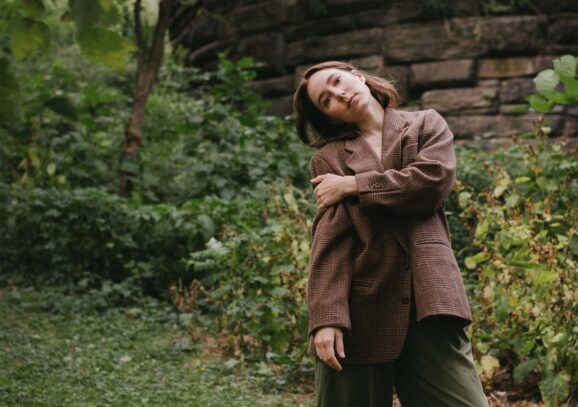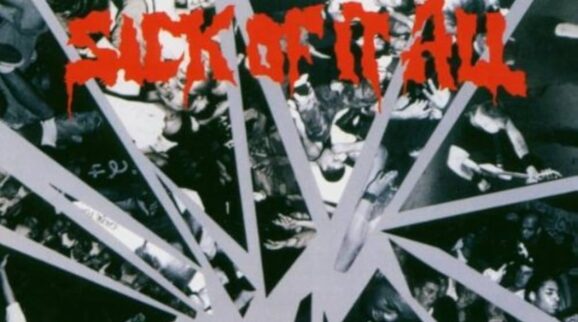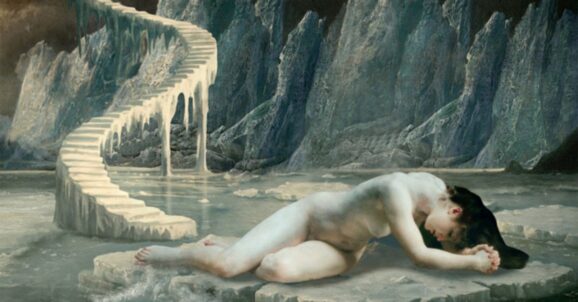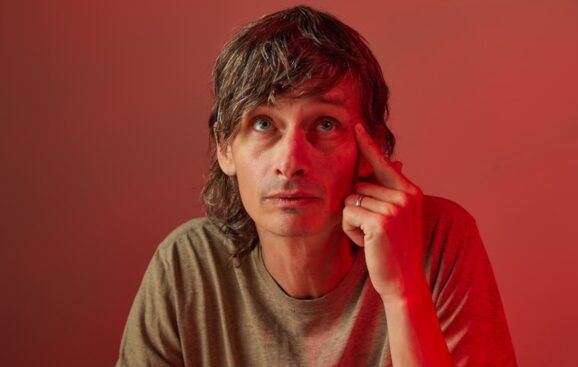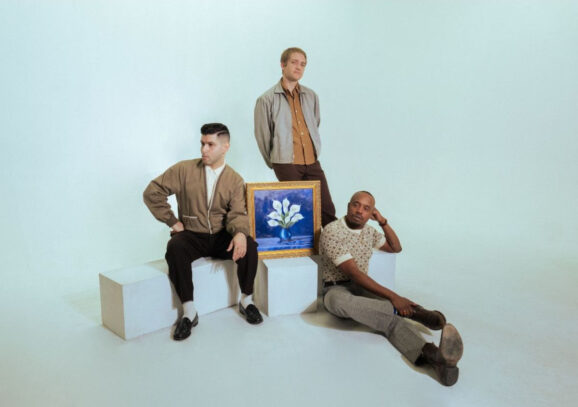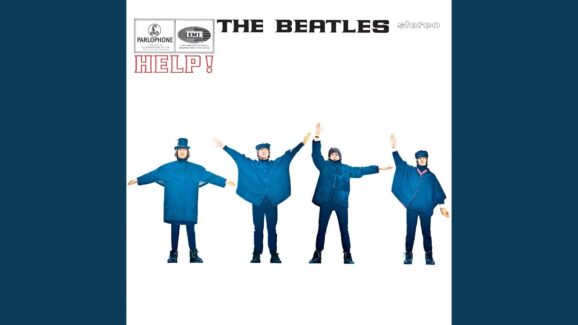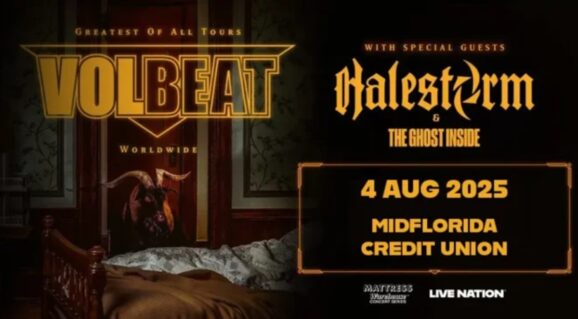J. Wilms will be releasing his fourth solo album, titled The Fighter, on December 8th, and it marks something of a departure for him. As someone who is an accomplished guitarist and has worked for many years as a studio musician as well as creating and releasing previous solo albums that were primarily instrumental, Wilms can naturally create very layered and textured work. For The Fighter, though, he took a different tack of removing all those more ornamental features and showcasing his own singing while keeping orchestration fairly minimal. Wilms recorded the album with Kyle Spence at RJS studios in Athens, Georgia, and was joined by Nick Robbins bass and Bo Bedingfield drums, with guest musicians including Julia Haltigan and David “Smoota” Smith.
Today Glide is excited to offer an exclusive premiere of the album in its entirety.
Wilms’ decision to take a more direct approach with these songs was based partly on changes in his life and the realization that he’d always held back as a vocalist because he could rely on his training as a composer and guitarist. What we hear on The Fighter album is a new, more intimate vantage on Wilms’ personality as a songwriter, but also some thought-provoking and very relatable lyrics delivered in an approachable way. From relationship uncertainties to the big questions about the role of death in our lives, Wilms doesn’t shy away from the cyclical nature of questions and answers, where answers often spark more questions. I spoke with J. Wilms about his relocation to Georgia, his recent exploration of film scoring, and how these new songs came together.
Hannah Means-Shannon: I understand that you moved to Georgia after many years in New York during the pandemic period and this connects to a renewed focus on songwriting. Are you finding it a more conducive atmosphere?
J. Wilms: It has been a culture shock, for sure, even this time coming back to it. There’s something kind of magical to me, though, about having a yard for my kids and being able to sit on the porch and hear birds. I can play the guitar and not hear jackhammers. Every apartment I lived in New York, there was just constant destruction/construction going on all the time. It was really good for me in that sense to get some quiet.
On my own trips to New York post-pandemic, I feel like the construction has re-doubled somehow due to many businesses being closed and relaunched.
Yes, and I’ve been going up to New York. The weird thing for me is that most of the people I work with and my connections are in New York, so I’ve been going back about every three months. It winds up being a lot. At least flying now is better now. But every time I go up there, when I’m in a space with people in someone’s apartment or at a gig, I’m so happy to be there. But the moment I’m out on the street, I think, “Oh my god, get me out of here!” It’s really funny. I miss the people incredibly and the concentration of great art and musicians, but I don’t really miss anything else about it. The benefits down here have been great for all of us.
That’s a perennial question for a lot of people in the arts is where to live and how to somehow also keep creative friendships and connections. There’s no easy answer. I find just having normal conversations with people of a similar mindset is key to sanity.
I remember recently reading an interview with Guillermo Del Toro about filmmaking, and what he has learned, and where he is now compared to where he was 20 years ago. He says that the biggest lesson that he’s learned is that everything he does is at the expense of something else. He’s stopped thinking, “I can do everything.” Once you make that decision to do something, you have to let go of the thing that you’re not doing. I think about that a lot. That’s a huge thing I’ve been going through in a multifaceted way in art and life.
I feel like that may be the main reason that people don’t create the personal work that they want to create. They feel they can’t pick that up when that means they have to put something else down. For that reason, I’m so glad that you made this solo album. It sounds like you made a big choice to focus on it.
Absolutely. The big thing about this album is that I decided to approach it differently. My previous solo album had tons of musicians and was a huge instrumental record. There was a lot of orchestration. That’s honest music in the sense that it’s exactly where I was coming from at the time, but this time I really wanted to make something where I’m not hiding behind anything. Part of the reason that the songwriting thing wasn’t at the forefront in my life was that I knew early on that I was a much better instrumentalist than a singer. I thought I’d do the songwriting on my own for that reason, and with the three instrumental albums I’ve put out, I feel like I’m hiding behind that a little bit. It’s a skillset, a talent, and an education set because I have a Master’s Degree in Composition.
But I felt like all the stuff that I was putting out in the world was not really what I got into music for. So I thought, “What do I have to lose? Why don’t I just put something out?” So this is who I am. If you listen to the Production, you’ll hear that we didn’t put any reverb on the vocals. It’s mostly just me singing into the mic with nothing on it. I’m very out-front and we did everything live. Really, for sound quality, we went back and replaced some guitars. We added a few overdubs, but not a ton. I did all the vocals with a maximum of three passes. I wanted this to really be my voice and for this really to be what my guitar-playing sounds like.
I can definitely hear that in the songs, but I think you’re not alone in feeling the need to make that decision. In an era where so much can be done digitally and electronically, there is a danger of going too far with that and for music to become very sculpted. Then you lose the human quality.
I’ve always kind of felt that way, anyway. But yes, I totally agree. As a working musician, if you’re a sideman and you’ve done any recording these days, you don’t even have to play a take from top to bottom anymore. It’s all so chopped up. I don’t want to do that. I never really did that, even on the bigger records I made. It’s understandable to want to rely on the technology.
One of the reasons that many people don’t really listen to Jazz anymore is that when you listen to records, you hear a mistake. Hearing mistakes and loving them is something that’s been lost.
You work in a number of different ways in music, from work as a sideman, to scoring films, to teaching. Are each of those separate boxes in your mind, with different rules you have to adhere to for each, or do you see overlaps?
When I work as a sideman these days, thankfully, I’m mostly hired to be myself. That’s mostly what I do now. If I go to New York, I work with band leaders who are hiring me just to be me. Maybe, occasionally, I’ll have to play sounding like someone else in a specific situation. The scoring thing is something that I’ve done a little bit of and am still building. One of the things about being in Atlanta is that there’s a huge movie industry which I’d like to get more involved in, so I’ve done some small, niche shorts and even some student stuff. A guy who did an animation for me has an animated series and I’ve worked with him.
What I do with that is different from songwriting because instead of pulling inspiration from the inside, I’m getting external stimuli. I’m looking at something and trying to really see how it makes me feel and what the mood is. It feels really satisfying for me to do that, and I feel like I’m fairly quick at it. But it’s something I’m only just dipping into at this point. That’s different from being a sideman because I am trying to hear what I’m seeing, if that makes sense. [Laughs]
It makes sense that you’re interested in composing film music because you’ve written so much instrumental music, too. Do you feel like the scoring work and the singer/songwriter work have a storytelling aspect to them? Does the music that you compose for film need to tell that story, or does it need to reflect and enhance that existing story?
It’s different depending on the situation. So far, everything I’ve done, the story seems pretty clear and I’m trying to heighten or enhance what someone has already established. I worked on a trailer for a movie that’s going into production next week, and then I’m going to compose the music for it. But the director and I had a long discussion about movies that he likes. He told me various movies where he liked the mood of the music and that was very helpful.
The music informs the mood of the movie. When I think of the movie Paris, Texas, by Wim Wenders, I never really realized till later that Ry Cooder did the music for that movie. Without that music, the movie would be totally different. It wouldn’t have that melancholic, wistful feeling.
I guess what I’m trying to say is that when you hear the music, you want to not be able to imagine the visual without the music. That’s how I’m approaching things. I’m not pushing the visual into a different world, but matching it where it is.
Is the animator you mentioned the same person who made the video for “Born To Die”? I found that to be really funny and, of course, recognizable with all the experiences of the pandemic.
Yes. There are some heavy things in the cartoon, but it’s basically kind of comical to me.
I appreciate the song a lot because if you ask yourself, “What is the thing that people are least likely to talk about that is the biggest influence on our lives?”, it would be this. The reality of death and things wearing out. Some people manage to approach it in a comedic, accessible way, thankfully.
Yes, we have to approach it. We have to grasp it. In some philosophies, some people would say that’s what life is, being able to grasp that. It’s a shitty-seeming truth about life that doesn’t have to be shitty. So much neurotic behavior arises from denying that.
Each of the songs on the album has a different direction. Some are very direct, too, like “All The Roads.” It’s kind of a relationship song, but it’s not necessarily a love song. It also has a lot of mythological or archetypal imagery.
That song is the only one on the record that happened in this way, but a handful of times in my life, I’ve fallen asleep and woken up with a song that’s fully formed. In this case, it was the last chorus of the song and the title of the song. And what you said is exactly what it felt like to me when I was putting it down. It was the day that Buddhist monk Thich Nhat Hanh had died, and I’m super into his work because of his peace in action in this world. I was sad to hear in the news that he died. The next morning I woke up, that last chorus, melody, and all the words were there. I kind of woke up singing it. It was in my head and then I articulated it, jumped out of bed, walked downstairs, and sat down on the piano.
I voice-memoed the whole chorus and it took maybe five minutes. Later that day, I went for a long walk and the story kind of unfolded. On the surface, it’s about a relationship, being at odds, then coming back together, whether it’s a romantic relationship or friendship. But it’s really about yourself and for me, personally, it embodied my experience of music. I got into music because I had really rough teenage years. I was a small kid and wasn’t good at sports. I was kind of an introvert, and I got into music to express myself through songs. But then I got very good at expressing myself through instrumental work, and then I went on a whole other trip that was basically about success as a working musician. You can see that in any field. It became more about getting the gig than the thing I was doing.
At some point, I realized, “What am I doing?” And that led me to making these songs. But I also think that introverts have a hard task because you have to learn to be an extroverted introvert in this society to succeed. Even if you’re doing everything on the internet, you have to put yourself out there to succeed. That’s something I’ve had to do, but the pandemic and coming back to Atlanta allowed me to become an introvert without shame. In a nutshell, that’s what went on with that song, regarding self-reflection. Subconsciously, all of that stuff was working on me and resulted in that song. I feel lucky.

